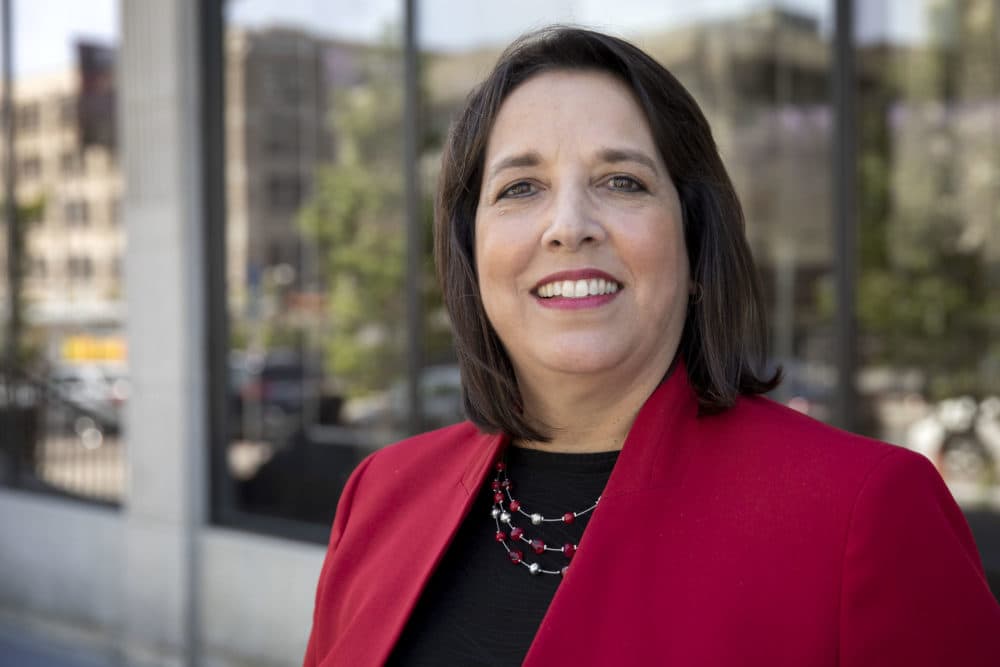Advertisement
Salem Mayor Kim Driscoll wins Democratic lieutenant governor primary

Massachusetts Attorney General Maura Healey now has her running mate in the race to be state’s next governor.
Salem Mayor Kim Driscoll clinched the Democratic primary nomination for lieutenant governor Tuesday, setting up a historic ticket in the general election this fall to replace outgoing Republican Gov. Charlie Baker and Lt. Gov. Karyn Polito.
Healey and Driscoll are the first time a major party has nominated two women for Massachusetts' top two statewide positions. The two Democrats will face Republican gubernatorial nominee Geoff Diehl and the winner of the Republican lieutenant governor race — either Leah Cole Allen or Kate Campanele — in the general election this fall — and start out as favorites to win it all.
Driscoll — who has served as mayor of Salem since 2006 — defeated state Sen. Eric Lesser and state Rep. Tami Gouveia in a relatively sleepy race that remained unpredictable down to the wire.
Polls had repeatedly shown Driscoll with a slight lead though the summer, but the majority of voters remained undecided into the primary’s final weeks. A MassINC poll last month found that most voters had never heard of either of the three candidates.
According to the state constitution, the lieutenant governor has little power and only two official duties: (1) step in if the governor dies, leaves office or is unable to serve and (2) sit on the Governor’s Council, which meets once a week to vote on the governor’s judicial appointees, as well as pardons and commutations.
That leaves a lot of freedom to individuals to mold the job to their liking. And recent lieutenant governors, like Polito, have used the office to serve as an unofficial liaison between the governor’s office and local municipal governments.
All three Democrats in the 2022 race focused on similar issues: reducing the cost of housing, improving public transportation and addressing climate change.
But in the absence of any major policy differences, they mostly contrasted themselves through the different approaches and experiences they would bring to the job.
In a WBUR-hosted debate, Driscoll argued that she would be a “strategic ally” for cities and towns, given her background in municipal government. Gouveia touted her public health background and said she would use the office to convene experts to recommend solutions to the root causes of the state’s most pressing issues. And Lesser pitched his relationships with Healey as a state lawmaker and with federal officials from his time in the White House. He also said he would be a voice for underrepresented parts of the state, like western Massachusetts.
Though there were few fireworks in the contest, Driscoll did take criticism from her two opponents last month over TV ads run by a super PAC with ties to a high-profile Republican donor and real estate investor. While campaigns and super PACs aren’t allowed to coordinate, Lesser called the group’s involvement a “dark-money disgrace,” while Gouveia pushed Driscoll to “fully disavow” the “insidious PAC.”
Driscoll, who has touted her “non-partisan” work in local government, responded that she was focusing on her own campaign.
The general election is Nov. 8, with early in-person voting starting on Oct. 22. All registered voters can also request a mail-in ballot.
